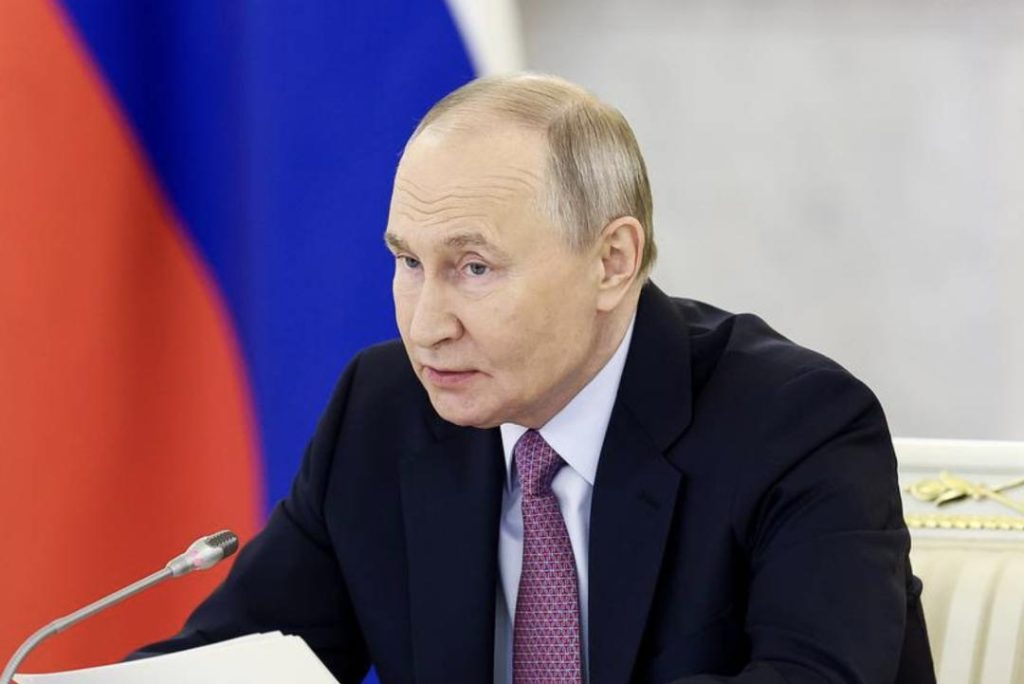
Russia & US in talks on cooperation in Arctic, Alaska: Putin
In a move that signals a significant shift in the geopolitical dynamics of the Arctic region, Russian President Vladimir Putin has announced that Russia and the United States are engaged in discussions about potential cooperation in both Russia’s Arctic zone and the US state of Alaska. The news comes as a surprise to many, given the tense relations between the two nations in recent years. However, Putin’s statement highlights the growing importance of the Arctic region, which is rich in natural resources and has significant strategic importance.
Speaking at a meeting with Russian business leaders, Putin noted that Russia possesses unique technologies that are of great interest to its international partners, including the US. “The technologies that we possess, today no one but us possesses…This is of interest to our partners, including those from the US,” he said. The Russian President also mentioned that Novatek, Russia’s largest liquefied natural gas (LNG) producer, is already operating in the Arctic region.
The potential for cooperation between Russia and the US in the Arctic region is significant, given the vast natural resources that lie beneath the ice. The region is estimated to hold significant reserves of oil, gas, and minerals, making it a highly prized destination for companies looking to capitalize on the growing global demand for these resources.
One of the main areas of potential cooperation between Russia and the US is in the field of LNG production. Russia’s Novatek is already a major player in the Arctic LNG market, and the company has announced plans to increase its production capacity in the coming years. The US, meanwhile, has seen a significant surge in LNG exports in recent years, with companies such as Cheniere Energy and Sempra Energy leading the charge.
The potential for cooperation between Russia and the US in the Arctic region is not limited to LNG production, however. The two nations are also discussing the possibility of working together on infrastructure projects, such as the construction of new ports and transportation networks. This could include the development of new shipping lanes, as well as the construction of pipelines and other infrastructure to support the extraction and transportation of natural resources.
The Russian President’s announcement has been met with cautious optimism by experts and analysts. Dr. Michael Klare, a leading expert on energy and security, has noted that the potential for cooperation between Russia and the US in the Arctic region is significant, but that there are also significant challenges to overcome. “The Arctic is a highly contested region, with multiple nations vying for access to its resources,” he said. “Any cooperation between Russia and the US will require careful negotiation and coordination to ensure that both sides are satisfied with the terms of the agreement.”
Despite the challenges, the potential benefits of cooperation between Russia and the US in the Arctic region are significant. For Russia, the opportunity to work with the US could provide a much-needed boost to its economy, which has been struggling in recent years. For the US, the potential to tap into the vast natural resources of the Arctic region could provide a significant source of new revenue and energy supply.
The Russian President’s announcement has also been met with interest from other nations, including Canada and Norway. Both countries have significant interests in the Arctic region, and have been watching the developments between Russia and the US with great interest.
In conclusion, the announcement by Russian President Vladimir Putin that Russia and the US are discussing the possibility of cooperation in the Arctic region is a significant development, with significant implications for the global energy market and the strategic landscape of the Arctic region. While there are certainly challenges to overcome, the potential benefits of cooperation between Russia and the US are significant, and could provide a much-needed boost to the global economy.
Source:



